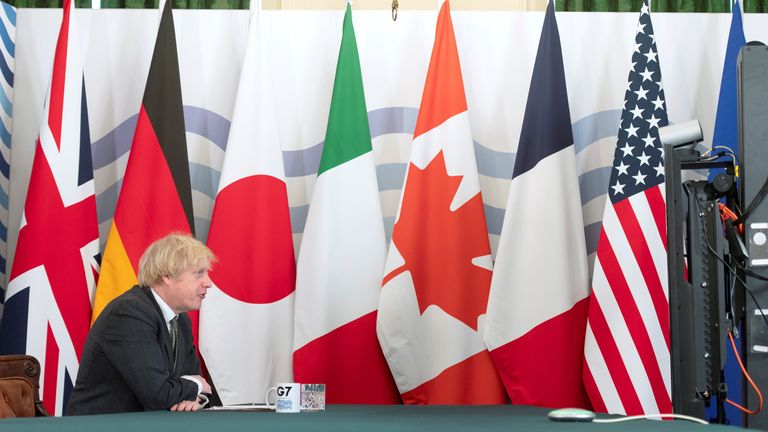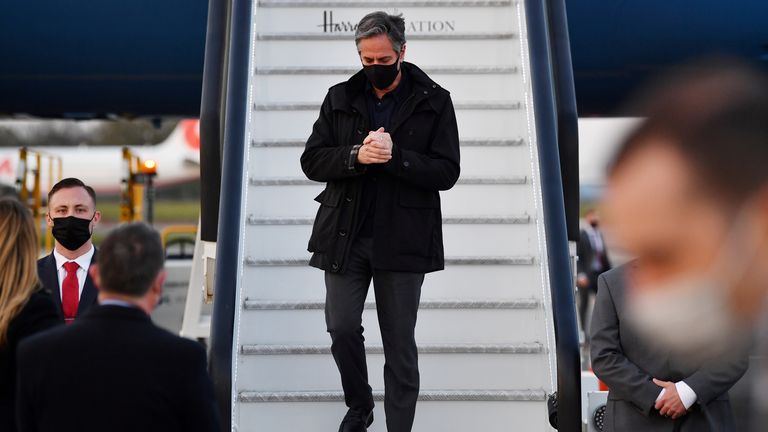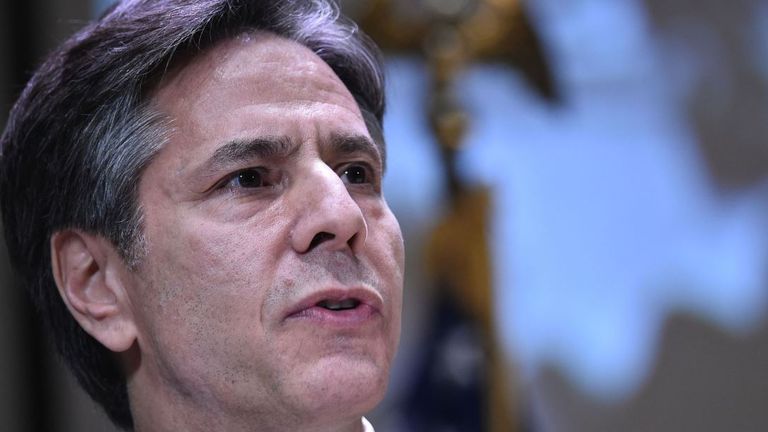Representatives of the world’s richest countries will meet face-to-face this week for the first time in two years.
The G7 meeting in London begins today, with attendees from Canada, France, Germany, Italy, Japan, the US and the UK.
Representatives from the European Union will also attend, as will India’s external affairs minister Subrahmanyam Jaishankar.
Australia, India, Japan, South Korea, and South Africa have also been invited.
Regular COVID-19 testing, size limits and other measures will be in place to prevent the spread of the virus among those attending.
This morning, British Foreign Secretary Dominic Raab will meet US Secretary of State Antony Blinken, who arrived in the UK on Sunday evening.
The two are expected to discuss the withdrawal of troops from Afghanistan, a post-Brexit trade deal, Iran’s nuclear programme, and China.
Mr Raab told Reuters news agency: “The scope for intense global cooperation, international cooperation with our American partners and indeed the wider G7, that we’re convening this week has never been greater.”
One of the points on the G7 agenda is expected to be how to deal with Russian “propaganda” and disinformation.
Mr Raab said the UK was “getting the G7 to come together with a rapid rebuttal mechanism” to counter Russian misinformation.
“So that when we see these lies and propaganda or fake news being put out there, we can – not just individually, but come together to provide a rebuttal and frankly to provide the truth, for the people of this country but also in Russia or China or around the world.”
Security officials in Britain, the US and Europe blame Russia and China for spreading disinformation about elections and COVID-19 vaccines.
Russia blames the West’s “anti-Russian hysteria” and China says the West is a bully.
Also, the Foreign Office said G7 ministers will invest £10.9bn in development finance over the next two years to help women in developing countries access jobs, create businesses, and recover from the impact of the coronavirus.
They are also expected to confirm a target of getting 40 million more girls into school, and 20 million more girls reading by the age of 10 in poorer nations by 2026.
But these measures will come after the government cut foreign aid from 0.7% of national income to 0.5%, citing the financial impact of the pandemic.
The cuts have been criticised by a number of organisations, including the UN Populations Fund, which said the 85% cut to its reproductive health agency as “devastating” for women, girls, and their families.
UNICEF will have its UK funding cut by about 60%, while funding for overseas water, sanitation, and hygiene projects will be cut by more than 80%.
Another report, by Devex, said funding for polio eradication will also be cut by 95%.














